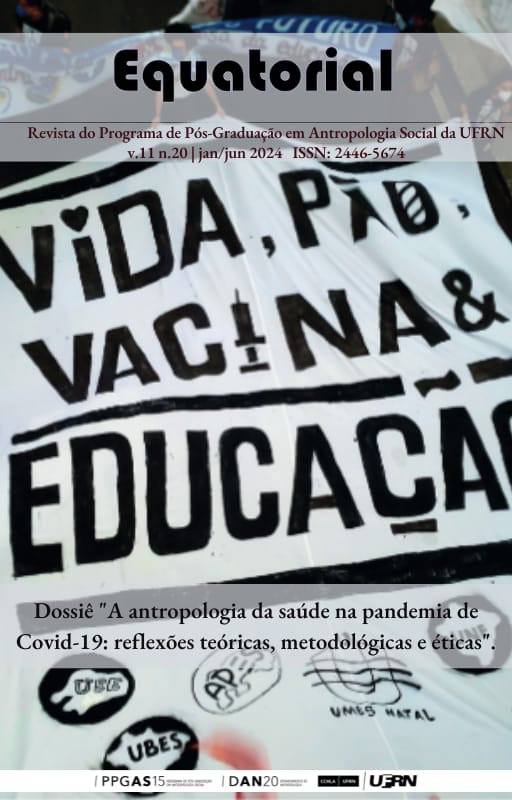Dupla Fratura
quando o ambientalismo e o colonialismo navegam juntos
DOI:
https://doi.org/10.21680/2446-5674.2024v11n20ID32135Palavras-chave:
colonialismo, ecologia, racismoResumo
Ventos fortes, relâmpagos e trovoadas tomam conta do céu. As ondas agitadas e os ventos em redemoinhos protagonizam a paisagem da Terra. Uma tempestade surge para a destruição dos ecossistemas, a prisão dos não humanos, as violências das guerras, as desigualdades socioespaciais, as discriminações raciais, as opressões das mulheres e a transformação da natureza em mercadoria. É sob a metáfora de uma tempestade moderna que Malcom Ferdinand na sua inovadora obra “Por uma ecologia decolonial: pensar a partir do mundo caribenho” anuncia a extinção em massa das espécies que está em curso, a poluição química, o aceleramento do aquecimento planetário e a justiça ambiental inerte são um alerta que a tempestade está se formando. O massacre dos ameríndios, o saque e a exploração das suas terras são ações comuns desde a colonização. A caça, a captura, o sequestro, o tráfico, a destituição, a redução, a violação, a compra e a travessia pelo Atlântico também são ações conhecidas. A escravidão das negras e dos negros africanos, retirados da sua terra mãe, junto das violências cometidas aos ameríndios, produziram uma forma destruidora de habitar a Terra. Esse habitar colonial é o grande responsável pela tempestade moderna que se forma nos céus. A transformação de humanos e não humanos em meros recursos a serem explorados é uma característica que se manteve nos países pós-colonais. A tempestade, então, representaria a aliança entre dois problemas urgentes: o racismo e a crise ecológica.
Downloads
Referências
FERDINAND, Malcom. Uma ecologia decolonial: pensar a partir do mundo Caribenho. Tradução Letícia Mei; prefácio Angela Davis; posfácio Guilherme Moura Fagundes. – São Paulo: Ubu Editora, 2022.
Downloads
Publicado
Como Citar
Edição
Seção
Licença
Copyright (c) 2024 Leide Joice Pontes Portela

Este trabalho está licenciado sob uma licença Creative Commons Attribution-NonCommercial-ShareAlike 4.0 International License.
Autores mantém os direitos autorais e concedem à revista o direito de primeira publicação, com o trabalho simultaneamente licenciado sob a Licença Creative Commons Attribution que permite o compartilhamento do trabalho com reconhecimento da autoria e publicação inicial nesta revista.

 Português (Brasil)
Português (Brasil) English
English Español (España)
Español (España)
